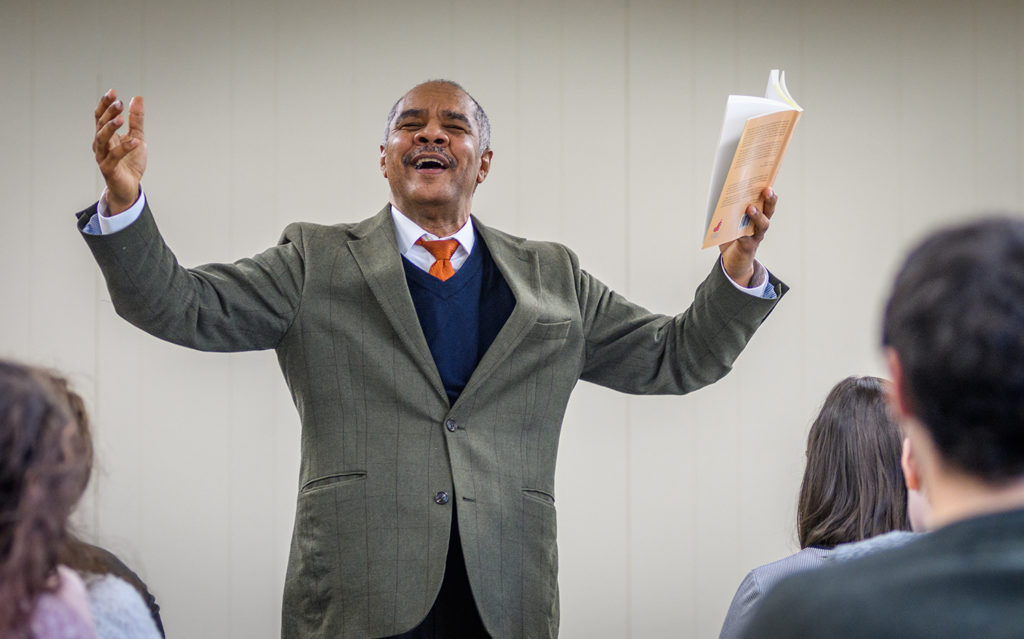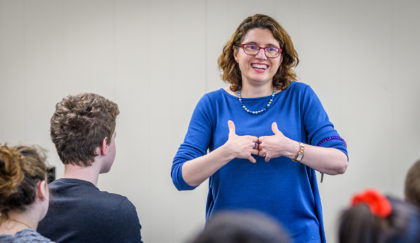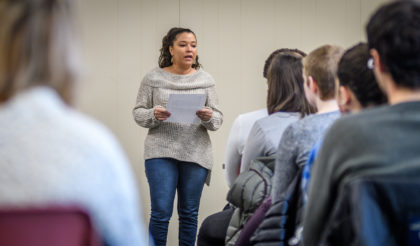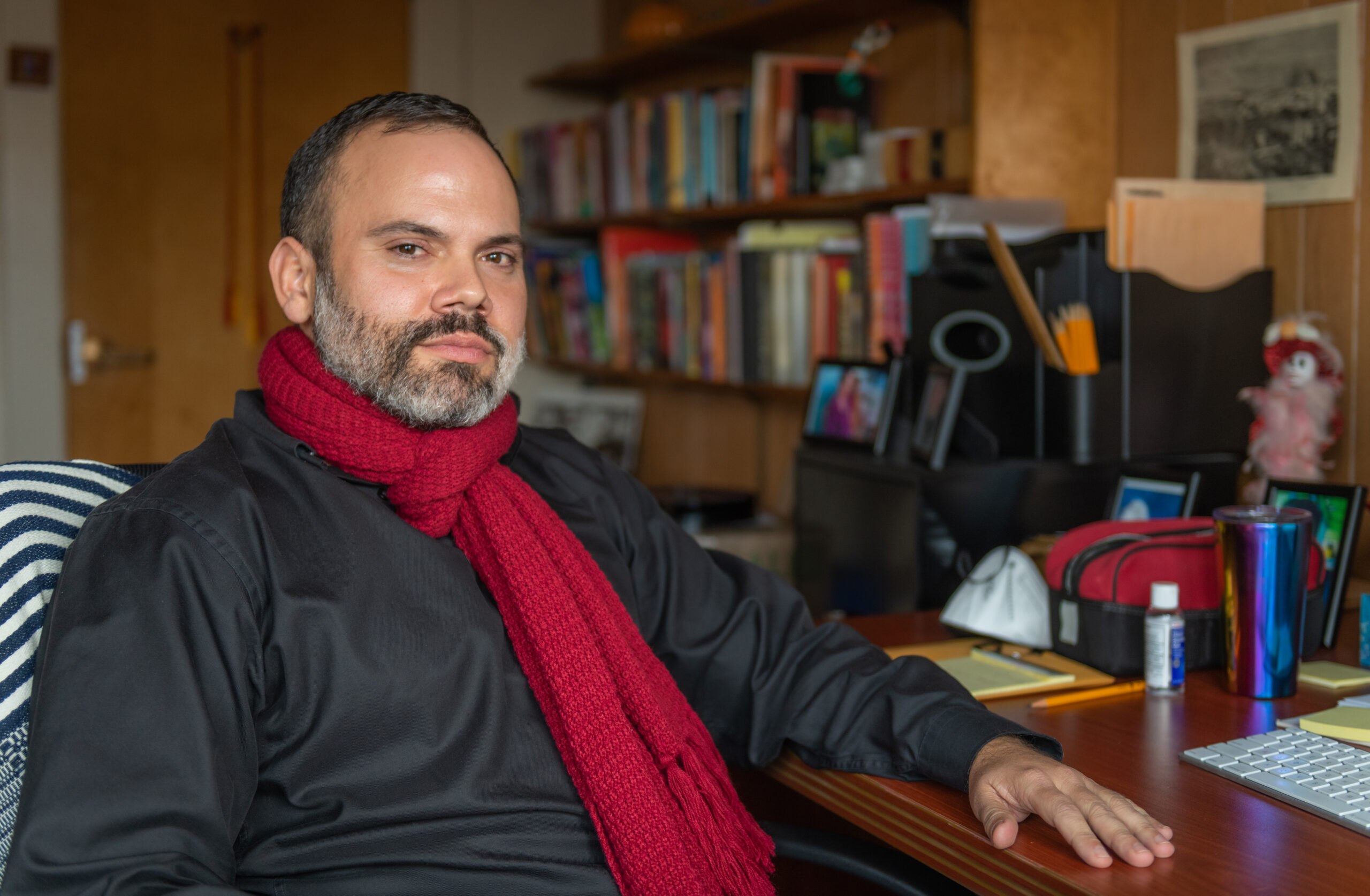Dominican poet shares stories of struggle, displacement, and exile with Clark students

Poet Juan Matos has devoted his life to his craft, centering his work on issues facing his native Dominican Republic, such as race, displacement, and diaspora. He recently visited Readings in Hispanic Literatures, a required course in the Spanish major. Associate Professor Bélen Atienza arranged for the visit as the class has been studying, translating, and discussing Matos’ poems. During a bilingual reading of his work, Matos explained how his poetry grew from issues dear to his own heart and identity.

In his youth, Matos explained, the Dominican Republic was a country struggling with its identity. He painted a picture of class conflict between the elites and ordinary citizens like himself. The country has a complex history of slavery, foreign control, and exploitation, he said, and he believes it’s important for all citizens, whether in the country or abroad, to remember that. “Without access to real history and education,” he said, “people begin to hate each other.”
Growing up with dark skin in the Dominican Republic, Matos said, required him and those like him to develop self-deprecation to hide their deep shame and sense of inferiority. His bilingual poetry touches on these issues. In “Yours Is the Face of My Mirror,” Matos speaks out to demand justice for his own people. It is a “declaration of blackness,” he said, in which he uses his power to shift the focus from the conqueror to the oppressed.
Dominican poetry is set apart by its “basic characteristics of musicality and movement,” Matos told the students. A teacher in the Dominican Republic before leaving that country, he now teaches poetry’s rhythms to Advanced Placement Spanish Literature and Culture students at Worcester’s North High School.

During Matos’ visit, students in the class read some of his poems aloud in both Spanish and English. Anabel Riggio ’22 was particularly touched by his work. “It was clear that he is not only a powerful poet, but also a strong voice for those who have been marginalized throughout history,” she said. “I was truly moved by his passion to rewrite history’s whitewashed narrative and to educate his readers on the injustices to indigenous people that still exist in our modern world.”
One of the best-known poets of the Dominican community, Matos’ works have been featured in numerous anthologies and literature reviews. His most recent collection of poetry, “The Man who left/ El hombre que se fue” was released last year. It it, he analyzes the cultural heritage of his country, good and bad. He denounces the racism, classism, and machismo that he and others have experienced.
This event was sponsored by the Language, Literature, and Culture Department at Clark.


